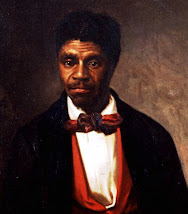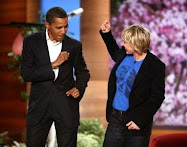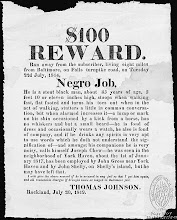Wednesday, August 20, 2008
Stephanie Tubb Jones, 58, Dies; U.S. Representative
By DENNIS HEVESI
Published: August 20, 2008
Stephanie Tubbs Jones, the first African-American woman elected to the House of Representatives from Ohio and a leader in the fight against predatory lending practices, died Wednesday. She was 58.
The cause was a ruptured brain aneurysm that Ms. Tubbs Jones suffered Tuesday, Eileen Sheil, a spokeswoman for the Cleveland Clinic, which owns the Huron Hospital in East Cleveland where the congresswoman died, told The Associated Press.
Ms. Tubbs Jones, a Democrat, was in her fifth term as representative of the 11th Congressional District, which includes most of the east side of Cleveland. Two years ago, she was re-elected with 83 percent of the vote. Before her first election to Congress, in 1998, she had been the chief prosecutor for Cuyahoga County in Ohio.
Considered a liberal, Ms. Tubbs Jones was a co-sponsor of legislative efforts to broaden health care coverage for low- and middle-income people and of programs supporting the re-entry of convicts into their communities. She was also the author of legislation requiring certification for mortgage brokers and stiffer penalties for predatory loans.
In June, Ms. Tubbs Jones voted against emergency supplemental financing for the wars in Iraq and Afghanistan.
“I feel it important that we have a plan for a timely redeployment of our troops from Iraq and Afghanistan before we continue funding what has become a seemingly endless war,” she said at the time.
When Congress officially ratified President Bush’s re-election in January 2005, Ms. Tubbs Jones joined Senator Barbara Boxer, Democrat of California, in initiating a rare challenge to what has historically been a polite formal ceremony. They were objecting to accepting Ohio’s 20 electoral votes for Mr. Bush, citing voting irregularities in the state.
Instead of holding a courteous joint session to certify the election, lawmakers were forced to retreat to their separate chambers for two hours of debate. In the end, the House voted 267 to 31 against the challenge; in the Senate, the vote was 74 to 1.
Stephanie Tubbs was born in Cleveland on Sept. 10, 1949. She graduated from Case Western Reserve University in 1971 and received her law degree there three years later.
From 1976 to 1979, she was an assistant Cuyahoga County prosecutor. In 1981, she won election as a Cleveland Municipal Court judge, and 10 years later she was appointed chief prosecutor.
As chief prosecutor, Ms. Tubbs Jones was at the center of a controversy in 1998 when she refused to reopen an investigation into the 1954 murder of the wife of Dr. Sam Sheppard, dismissing new DNA evidence that Dr. Sheppard’s supporters said would have exonerated him.
The case had received nationwide coverage in the 1950s. Dr. Sheppard spent 10 years in prison before the Supreme Court ruled that his trial had been prejudiced by publicity. He was acquitted at a second trial, in 1966, and died in 1970. With the new evidence, Dr. Sheppard’s son was seeking to collect damages on behalf of his father. Ms. Tubbs Jones argued that the new DNA results would be inadmissible because the samples were too old.
Ms. Tubbs Jones’s husband of 27 years, Mervyn L. Jones Sr., died in 2003. She is survived by her son, Mervyn II.
Published: August 20, 2008
Stephanie Tubbs Jones, the first African-American woman elected to the House of Representatives from Ohio and a leader in the fight against predatory lending practices, died Wednesday. She was 58.
The cause was a ruptured brain aneurysm that Ms. Tubbs Jones suffered Tuesday, Eileen Sheil, a spokeswoman for the Cleveland Clinic, which owns the Huron Hospital in East Cleveland where the congresswoman died, told The Associated Press.
Ms. Tubbs Jones, a Democrat, was in her fifth term as representative of the 11th Congressional District, which includes most of the east side of Cleveland. Two years ago, she was re-elected with 83 percent of the vote. Before her first election to Congress, in 1998, she had been the chief prosecutor for Cuyahoga County in Ohio.
Considered a liberal, Ms. Tubbs Jones was a co-sponsor of legislative efforts to broaden health care coverage for low- and middle-income people and of programs supporting the re-entry of convicts into their communities. She was also the author of legislation requiring certification for mortgage brokers and stiffer penalties for predatory loans.
In June, Ms. Tubbs Jones voted against emergency supplemental financing for the wars in Iraq and Afghanistan.
“I feel it important that we have a plan for a timely redeployment of our troops from Iraq and Afghanistan before we continue funding what has become a seemingly endless war,” she said at the time.
When Congress officially ratified President Bush’s re-election in January 2005, Ms. Tubbs Jones joined Senator Barbara Boxer, Democrat of California, in initiating a rare challenge to what has historically been a polite formal ceremony. They were objecting to accepting Ohio’s 20 electoral votes for Mr. Bush, citing voting irregularities in the state.
Instead of holding a courteous joint session to certify the election, lawmakers were forced to retreat to their separate chambers for two hours of debate. In the end, the House voted 267 to 31 against the challenge; in the Senate, the vote was 74 to 1.
Stephanie Tubbs was born in Cleveland on Sept. 10, 1949. She graduated from Case Western Reserve University in 1971 and received her law degree there three years later.
From 1976 to 1979, she was an assistant Cuyahoga County prosecutor. In 1981, she won election as a Cleveland Municipal Court judge, and 10 years later she was appointed chief prosecutor.
As chief prosecutor, Ms. Tubbs Jones was at the center of a controversy in 1998 when she refused to reopen an investigation into the 1954 murder of the wife of Dr. Sam Sheppard, dismissing new DNA evidence that Dr. Sheppard’s supporters said would have exonerated him.
The case had received nationwide coverage in the 1950s. Dr. Sheppard spent 10 years in prison before the Supreme Court ruled that his trial had been prejudiced by publicity. He was acquitted at a second trial, in 1966, and died in 1970. With the new evidence, Dr. Sheppard’s son was seeking to collect damages on behalf of his father. Ms. Tubbs Jones argued that the new DNA results would be inadmissible because the samples were too old.
Ms. Tubbs Jones’s husband of 27 years, Mervyn L. Jones Sr., died in 2003. She is survived by her son, Mervyn II.
Subscribe to:
Post Comments (Atom)

















































No comments:
Post a Comment